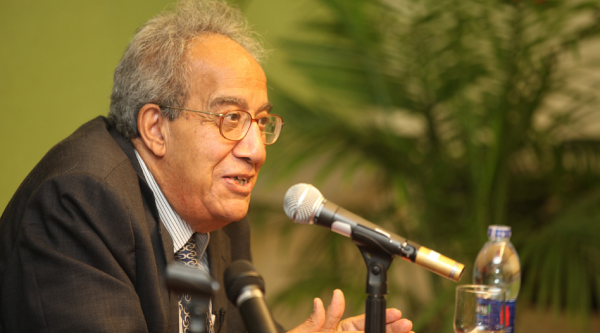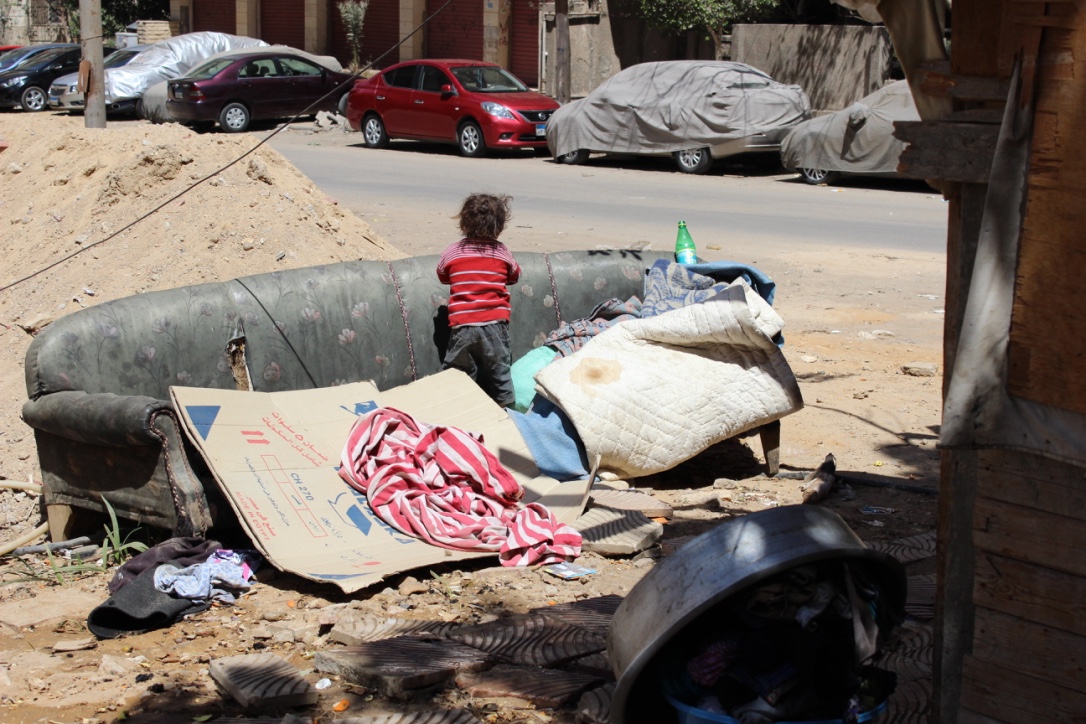AMIN: EGYPT NEEDS A THIRD REVOLUTION

By: Maram Shalaby
Galal Amin, prominent Egyptian economist and emeritus professor at AUC, said that Egypt needs a third revolution in order to improve its deteriorating economic and political situation.
“Almost all economic indicators show deterioration with the possible exception of two: labor remittances from abroad and the revenues from the Suez Canal,” he said in a lecture entitled “The Egyptian Economy After Two Revolutions” at AUC last Monday.
He added that Egypt needed a third real revolution in order to improve its economic and political situation.
In his opinion, the term revolution lost its true meaning. He referred to Jan. 25 and June 30 as two revolutions “à la mode” because people started them but were never allowed to participate in the decision-making process afterwards, due to “corruption.”
According to him, on average, the growth of the Egyptian gross domestic product (GDP) over the past three years has been less than the growth of the population.
Moreover, the unemployment rate used to be around 7 or 8 percent before the January 25 Revolution; now, it has doubled reaching 14 percent.
“Although the [economic] situation [of 1967 to 1973] was really comparable to how it is now, it was better in one aspect: people expected the government to care about the poor; I don’t think there is this feeling now,” said Amin.
The economist added that ever since the January 25 Revolution, the country has been witnessing several political and economic changes that permitted corruption to continue, starting from the military’s intervention to the presidential elections and finally to the happenings of June 30.
Amin said that as an example, trusting the military headed by a man who served under Mubarak after the January 25 Revolution was a mistake from the Egyptian people and that it led to more corruption.
Amin then spoke about the last Presidential elections and how Egyptians had to choose between Ahmed Shafik, who served as Mubarak’s Prime Minister, and Former President Mohamed Morsi, a member of the Muslim Brotherhood (MB).
He said that the difference between them is that one wanted to rewind Egypt 30 years back and the other one three centuries.
Another problem the country’s economy faces, according to Amin, are government subsidies because they represent one third of the government’s expenditures.
However, the government will not reduce them because they are used as a tool to blind people from corruption.
In order for the government to continue these subsidies, they take loans from foreign countries, which adds to Egypt’s foreign debt.
According to Amin, the Egyptian budget deficit increased from around 8 percent to around 14 percent after the revolution and the country’s foreign debt is approaching $50 billion.
He added that the annual income Egypt used to get from tourism was better than all the loans and aids the country has been receiving, ever since 2011, put together.
“The Egyptian Economy has fantastic resources, versified resources; we are not a one-sector economy, we have the tourism, the Suez Canal, the agriculture and industrial sector, we can [fix our economy without any aids] if we take the right decisions,” said Amin.
He then addressed minimum and maximum wages and said that this is not going to solve Egypt’s economic problems; the government should be currently doing is creating jobs to decrease the country’s unemployment rate.
He believes that such limitations could be effective in the public sector but certainly not in the private one.
Amin also suggested that progressive taxation, which is taking higher taxes from high-income earners than low-income earners, is not a practical solution for today’s economy.
The government should be focusing on collecting the taxes that haven’t been paid over the past years rather than applying new ones.
He said that over EGP 126 billion haven’t been paid yet of which half are due by the big taxpayers or the elite.
“The main problem [of Egypt’s situation] is the marriage between business and politics,” said Amin.
He said that the situation wouldn’t get better unless these two issues get separated because mixing them together is the number one cause of corruption.
Amin added that people cannot understand what has been happening throughout the country over the past three years without mixing three aspects together; economical, social and political.
“I’m not a believer in democracy; I think it is absurd everywhere in the world. I lived in the United States for two years and I found that Americans are as brainwashed as we are in Egypt but with different techniques,” he said.
“Their brains are washed by television and consumerism of the society, and here [they’re brainwashed] by religious rhetoric, and I don’t know which is better,” he added.
He stressed that democracy Egypt is not a solution unless the government is very severe and strict about preventing religion from being used as a tool in political campaigns.
“This is one of the things that are a bit discouraging because I don’t see any signs that they [people in power today] are going to



